Password Security Best Practices 2025: Business Guide & NIST Tips
Last Updated on May 26, 2025
Password security has evolved dramatically from the simple “create a complex password and change it regularly” advice of the past. Today's threat landscape includes AI-powered attacks, sophisticated social engineering, and quantum computing threats that require businesses to rethink their entire approach to authentication and access control.
The 2024 NIST Digital Identity Guidelines have fundamentally changed password best practices, moving away from complexity requirements toward length-based security and user-friendly policies that actually improve rather than undermine security. Understanding and implementing these updated guidelines can dramatically strengthen your organization's security while reducing user frustration and compliance overhead.
Table of Contents
- 1 Understanding the Modern Password Threat Landscape
- 2 2025 NIST Password Guidelines: The New Standard
- 3 Enterprise Password Management Solutions
- 4 Multi-Factor Authentication: Essential Security Layer
- 5 Passkeys and Passwordless Authentication
- 6 Remote Work Password Security
- 7 Business Compliance and Regulatory Requirements
- 8 AI-Enhanced Security Tools
- 9 Building a Comprehensive Password Security Program
- 10 Emergency Response and Recovery Procedures
- 11 Future-Proofing Password Security
- 12 Professional Implementation and Support
- 13 Conclusion: Building Resilient Authentication for Modern Business
Understanding the Modern Password Threat Landscape
Businesses today face far more sophisticated password attack methods than traditional brute force attempts. Cybercriminals now employ AI-powered tools, massive databases of compromised credentials, and advanced social engineering techniques that can bypass traditional password protection strategies.
Credential Stuffing and Password Spraying
Credential stuffing attacks use millions of username-password combinations from previous data breaches to attempt logins across multiple platforms. Password spraying takes a different approach, using common passwords against many accounts to avoid triggering lockout mechanisms. These automated attacks can test thousands of credential combinations per minute, making weak or reused passwords extremely vulnerable.
The sheer scale of compromised credentials available makes these attacks particularly effective. Cybercriminals have access to billions of leaked passwords from major breaches, which they constantly refine and update using machine learning algorithms that identify patterns in how people create passwords.
AI-Enhanced Attack Methods
Artificial intelligence has transformed password cracking capabilities, with machine learning algorithms that can predict password patterns, generate likely variations, and adapt attack strategies in real-time. These AI systems analyze social media profiles, company information, and personal details to create highly targeted password-guessing attempts.
Modern password cracking tools can process over 350 billion guesses per second using specialized hardware, making traditional 8-character passwords with basic complexity rules inadequate for business protection. The combination of AI analysis and raw computational power means that passwords following old-school complexity patterns can be cracked in minutes rather than years.
Social Engineering and Phishing Evolution
Social engineering attacks have become increasingly sophisticated. Attackers use detailed research about individuals and organizations to craft convincing password reset requests, fake support calls, and phishing emails that bypass technical controls entirely.
These attacks often target employees directly through phone calls claiming to be from IT support, fake emergency scenarios requiring immediate password sharing, or sophisticated email campaigns that perfectly mimic legitimate services. Regardless of technical controls, the human element remains the most vulnerable aspect of password security.
2025 NIST Password Guidelines: The New Standard
The National Institute of Standards and Technology revolutionized password guidance in 2024, moving away from complexity-focused requirements toward user-friendly policies that actually improve security outcomes. These guidelines represent the most significant shift in password best practices in decades.
Length Over Complexity
The cornerstone of modern password security is length rather than complexity. Research demonstrates that longer passwords create exponentially more possible combinations than shorter complex passwords, making them significantly harder to crack even with advanced computing power.
A 15-character password using only lowercase letters is mathematically more secure than an 8-character password with uppercase, lowercase, numbers, and symbols. This approach also reduces user frustration and the tendency to write down or reuse passwords, creating practical security improvements alongside theoretical ones.
NIST-Recommended Password Practices:
- Minimum 12-15 characters for business accounts, with longer phrases preferred
- Eliminate forced complexity requirements that often weaken actual security
- No mandatory periodic password changes unless evidence of compromise exists
- Implement password blocklists preventing common or compromised passwords
- Allow all printable characters including spaces and special characters
- Provide clear guidance rather than cryptic complexity rules
Eliminating Counterproductive Requirements
Traditional password policies often included requirements that actually weakened security by encouraging predictable patterns. Forced complexity requirements led users to create passwords like “Password1!” that meet technical requirements but remain highly vulnerable to attack.
Regular mandatory password changes, previously considered essential security practice, have been eliminated from NIST recommendations because they typically result in weaker passwords with predictable patterns. Users tend to make minimal changes to existing passwords or cycle through small variations, reducing rather than improving security.
Password hints and security questions have also been deprecated because personal information is often available through social media research or data breaches. These supposedly secret answers can frequently be discovered through basic online investigation, making them security vulnerabilities rather than protective measures.
Enterprise Password Management Solutions
Modern businesses require centralized password management strategies that remove the burden of password creation and storage from individual users while providing IT teams with visibility and control over organizational password hygiene.
Centralized Password Vaults
Enterprise password management begins with encrypted password vaults that generate, store, and automatically fill complex passwords for business applications. These systems eliminate the human element in password creation while ensuring every account uses unique, high-strength credentials.
Professional password management platforms provide administrative oversight, policy enforcement, and audit capabilities that individual password managers cannot match. IT teams can monitor password strength across the organization, identify accounts using weak or reused passwords, and enforce security policies consistently.
Integration with existing business systems becomes crucial for adoption and effectiveness. Enterprise password managers should connect seamlessly with Active Directory, single sign-on platforms, and other identity management systems to provide unified access control.
Privileged Access Management (PAM)
For larger organizations, Privileged Access Management solutions extend password management to include advanced access controls, session monitoring, and automated credential rotation. PAM systems manage not just passwords but entire access workflows, ensuring credentials provide only necessary access when it's needed.
These platforms automatically rotate privileged account passwords, maintain detailed audit logs of access activities, and can implement just-in-time access provisioning that creates and destroys credentials dynamically based on specific needs.
The administrative burden of password management decreases significantly with PAM implementation, while security oversight increases through centralized monitoring and automated policy enforcement.
Implementation Considerations
Successful enterprise password management requires careful planning around user adoption, system integration, and emergency access procedures. Organizations must balance security requirements with operational efficiency to ensure the solution enhances rather than hinders productivity.
Change management becomes critical during implementation, as users must adapt to new workflows and abandon insecure practices like browser-stored passwords or written credentials. Training and clear communication help ensure adoption while maintaining security standards.
Backup and recovery procedures for password management systems require special attention since these platforms become single points of failure for organizational access. High availability configurations, geographic replication, and emergency access procedures ensure business continuity even during system failures.
Multi-Factor Authentication: Essential Security Layer
Multi-factor authentication has evolved from an optional security enhancement to an essential requirement for business systems, with Microsoft research showing that MFA prevents over 99.9% of automated attacks on user accounts.
Modern MFA Implementation
Contemporary MFA solutions go beyond simple SMS codes to include biometric authentication, hardware security keys, and push notifications that provide both security and user convenience. The most effective implementations balance strong security with minimal user friction to encourage adoption and consistent use.
Effective MFA Methods:
- Hardware security keys (FIDO2/WebAuthn) for highest security
- Authenticator apps generating time-based codes
- Push notifications to registered devices
- Biometric authentication where supported
- Backup codes for emergency access
Hardware security keys represent the gold standard for MFA because they're resistant to phishing attacks and provide cryptographic proof of authentication. Unlike SMS codes or authenticator apps, security keys cannot be intercepted or replicated by attackers, making them ideal for high-value accounts and privileged access.
Avoiding MFA Vulnerabilities
SMS-based two-factor authentication, while better than no MFA, remains vulnerable to SIM swapping attacks and message interception. Organizations should prioritize app-based or hardware authentication methods for business-critical systems.
Backup authentication methods require careful consideration to avoid creating security weak points. Emergency access codes should be stored securely and rotated regularly, while alternative authentication methods should maintain equivalent security standards.
User education about MFA becomes essential for preventing social engineering attacks that attempt to bypass multi-factor authentication through fake support calls or phishing campaigns designed to capture authentication codes.
Passkeys and Passwordless Authentication
The future of business authentication is moving toward passwordless solutions that eliminate traditional passwords entirely, replacing them with cryptographic keys and device-based authentication that provide superior security with improved user experience.
Understanding Passkey Technology
Passkeys use public-key cryptography to create unique authentication credentials tied to specific devices and websites. Unlike passwords, passkeys cannot be phished, stolen in data breaches, or guessed through brute force attacks because they exist only on the user's device and the authentication service.
The technology builds on FIDO2 and WebAuthn standards that major technology companies have adopted across platforms. Users authenticate using biometrics, device PINs, or security keys, while the underlying cryptographic process handles secure authentication without transmitting secrets across networks.
Business Implementation Benefits
Passwordless authentication eliminates many traditional password security challenges while improving user experience. Users no longer need to remember complex passwords, and IT teams no longer need to manage password policies, resets, or compromise responses.
The security benefits extend beyond eliminating password-based attacks. Passkeys are resistant to man-in-the-middle attacks, phishing attempts, and credential stuffing because each authentication is cryptographically unique and tied to specific domains.
Migration Strategies
Organizations implementing passkey authentication typically use phased rollouts that begin with specific user groups or applications before expanding organization-wide. This approach allows IT teams to address integration challenges and user training needs while maintaining operational continuity.
Hybrid approaches that support both traditional passwords and passkeys during transition periods help ensure business continuity while encouraging adoption of more secure authentication methods.
Remote Work Password Security
The shift to distributed work environments has created new password security challenges that require specific strategies for protecting credentials across multiple locations, devices, and network connections.
Securing Home Office Environments
Remote workers often use personal devices and networks for business access, creating potential security vulnerabilities that traditional office-based controls cannot address. Password security must account for shared family computers, unsecured Wi-Fi networks, and varying levels of technical sophistication among remote employees.
Virtual private networks (VPNs) become essential for remote access security, but VPN credentials themselves require protection through strong passwords and multi-factor authentication. The authentication chain is only as strong as its weakest link, making comprehensive password security critical for remote access infrastructure.
Device management policies should address password storage on personal devices, including restrictions on browser-based password storage and requirements for approved password management applications.
Cloud Service Security
Remote work typically involves increased reliance on cloud-based business applications, each requiring secure authentication. Single sign-on (SSO) solutions can reduce the number of passwords users must manage while providing centralized security controls.
Cloud service authentication should include multi-factor authentication for all business applications, with particular attention to administrative accounts and services containing sensitive data. Comprehensive cybersecurity measures help protect cloud-based business operations through layered security approaches.
Mobile Device Considerations
Smartphones and tablets have become primary business tools, requiring specific password security measures for mobile applications and services. Mobile device management (MDM) solutions can enforce password policies, but users must understand proper security practices for personal devices used for business access.
Biometric authentication on mobile devices provides excellent security when properly configured, but backup authentication methods must maintain equivalent security standards to prevent circumvention through device restart or biometric failure scenarios.
Business Compliance and Regulatory Requirements
Password security increasingly intersects with compliance requirements across industries, with specific regulations mandating particular authentication controls and audit capabilities.
Industry-Specific Requirements
Healthcare organizations must ensure password policies align with HIPAA requirements for protecting patient data, including specific authentication standards and audit trail requirements. Financial services companies face SOX compliance demands that include identity management and access control documentation.
Government contractors must meet NIST 800-171 requirements that specify multi-factor authentication and password strength standards for systems handling controlled unclassified information. These requirements often exceed general business best practices and require specific implementation approaches.
SOC 2 and Security Frameworks
Organizations pursuing SOC 2 compliance must demonstrate how they track and manage credentials, making password management systems essential for meeting audit requirements. These frameworks require documented password policies, regular access reviews, and evidence of security control effectiveness.
ISO 27001 certification includes specific requirements for password management, access control, and identity management that must be integrated into overall information security management systems.
Audit and Documentation Requirements
Compliance frameworks typically require detailed documentation of password policies, evidence of policy enforcement, and regular audits of access controls. Automated password management systems can generate much of this documentation automatically while ensuring consistent policy application.
Regular access reviews, password strength assessments, and security training documentation become essential for demonstrating compliance with various regulatory frameworks.
AI-Enhanced Security Tools
Artificial intelligence is revolutionizing password security defense as well as attack capabilities, with AI-powered tools that can identify compromised credentials, detect unusual access patterns, and automate security responses.
Behavioral Analytics
AI systems can establish baseline patterns for individual users and identify anomalous access attempts that may indicate compromised credentials. These systems analyze factors like login times, device characteristics, network locations, and application usage patterns to identify potential security incidents.
Behavioral analytics can detect credential stuffing attacks, account takeovers, and other compromise scenarios that traditional security controls might miss. The systems adapt to changing user behavior while maintaining sensitivity to legitimate security concerns.
Automated Threat Detection
Machine learning algorithms can process vast amounts of authentication data to identify attack patterns, compromised credentials, and security policy violations in real-time. These systems can automatically trigger security responses like additional authentication requirements or account lockouts based on risk assessments.
AI-powered security tools can correlate password-related events with other security indicators to provide comprehensive threat detection that considers password security within broader organizational security contexts.
Predictive Security Measures
Advanced AI systems can predict likely attack vectors and proactively strengthen security measures before attacks occur. These capabilities include identifying accounts likely to be targeted, predicting password compromise risks, and recommending specific security improvements based on threat intelligence.
Predictive analytics can help organizations prioritize security investments and focus attention on the most vulnerable aspects of their password security infrastructure.
Building a Comprehensive Password Security Program
Effective organizational password security requires coordinated policies, technologies, and training programs that address both technical controls and human factors in password management.
Policy Development Framework
Modern password policies should focus on length requirements, prohibited password lists, and multi-factor authentication mandates rather than complex character requirements that often weaken actual security. Policies should provide clear guidance about acceptable practices while avoiding counterproductive requirements.
Essential Policy Elements:
- Minimum password lengths based on account sensitivity (12-15 characters minimum)
- Prohibited password lists including common passwords and company-related terms
- Multi-factor authentication requirements for all business systems
- Password manager usage mandates for business accounts
- Incident response procedures for suspected password compromise
- Regular policy review and updates based on threat evolution
Training programs should educate employees about modern password threats, proper use of password management tools, and recognition of social engineering attempts. Regular training updates help maintain awareness as threats evolve and new security tools are implemented.
Technology Integration Strategies
Successful password security programs integrate multiple technologies into cohesive security architectures that support business operations while maintaining strong protection. Single sign-on solutions, password managers, multi-factor authentication, and monitoring systems should work together seamlessly.
Integration with existing business systems ensures that security measures enhance rather than hinder productivity. Identity management platforms should connect password security tools with business applications, user directories, and security monitoring systems.
Monitoring and Improvement
Continuous monitoring of password security metrics helps organizations identify weaknesses and track improvement over time. Key metrics include password strength distributions, multi-factor authentication adoption rates, and security incident frequencies related to credential compromise.
Regular security assessments should evaluate both technical controls and user behavior to identify areas for improvement. These assessments help ensure that password security measures remain effective as threats and business requirements evolve.
Professional security assessments can provide an objective evaluation of password security programs and recommendations for improvement based on current best practices and threat intelligence.
Emergency Response and Recovery Procedures
Password security incidents require rapid response procedures that can contain damage while restoring normal operations quickly. Organizations must prepare for scenarios including mass credential compromise, system breaches, and social engineering attacks.
Incident Response Planning
Password-related security incidents often require immediate actions, including credential resets, system lockdowns, and user communications. Response plans should specify roles and responsibilities, communication procedures, and technical steps for different types of incidents.
Backup authentication methods become critical during security incidents when primary credentials may be compromised. Emergency access procedures should allow legitimate users to maintain business operations while preventing unauthorized access.
Business Continuity Considerations
Password security systems represent potential single points of failure that could disrupt business operations if they become unavailable. High availability configurations, backup systems, and alternative access methods help ensure business continuity during security incidents or system failures.
Comprehensive backup and data recovery strategies should include password management systems and authentication infrastructure to enable rapid recovery from various failure scenarios.
Recovery and Lessons Learned
Post-incident analysis helps organizations understand attack vectors, identify security gaps, and improve future response capabilities. Password-related incidents often reveal broader security weaknesses that require systematic remediation.
Recovery procedures should include credential strength verification, security control validation, and user re-training to prevent similar incidents. Organizations should treat password security incidents as opportunities to strengthen overall security posture.
Future-Proofing Password Security
Technology evolution continues accelerating, and password security strategies must accommodate emerging threats and authentication technologies without requiring complete infrastructure replacement.
Quantum Computing Implications
Quantum computing advances pose long-term threats to current cryptographic standards, including those underlying password hashing and authentication systems. Organizations should plan for eventual migration to quantum-resistant cryptographic methods while maintaining current security standards.
The timeline for quantum computing threats remains uncertain, but preparation should begin now through adoption of crypto-agility principles that enable rapid algorithm updates when necessary.
Emerging Authentication Technologies
Biometric authentication, behavioral analytics, and continuous authentication represent emerging technologies that may supplement or replace traditional password-based systems. Organizations should evaluate these technologies while maintaining compatibility with existing systems.
Zero-trust security architectures are reshaping authentication requirements by assuming that all access requests are potentially compromised. This approach requires continuous verification and minimal privilege access regardless of user location or device.
Regulatory Evolution
Privacy regulations and cybersecurity frameworks continue evolving, with new requirements for authentication security, data protection, and incident response. Organizations must monitor regulatory developments while maintaining flexible security architectures that can adapt to changing requirements.
Industry-specific regulations increasingly include specific password and authentication requirements that may differ from general best practices. Staying informed about regulatory changes helps ensure continued compliance while maintaining security effectiveness.
Professional Implementation and Support
Many organizations, particularly those with complex regulatory requirements, legacy system constraints, or limited internal security expertise, benefit from professional guidance when developing comprehensive password security programs.
Security Assessment Services
Professional security assessments can evaluate current password security posture, identify vulnerabilities, and recommend improvements based on industry best practices and regulatory requirements. These assessments provide objective analysis that internal teams may overlook.
Penetration testing specifically focused on authentication systems can identify weaknesses in password policies, multi-factor authentication implementations, and access control procedures before attackers discover them.
Implementation Support
Complex password security implementations often benefit from professional project management and technical expertise. Comprehensive IT services can help design, implement, and maintain password security solutions that align with business requirements while meeting security standards.
Migration from legacy authentication systems to modern password security platforms requires careful planning to maintain business continuity while improving security. Professional guidance helps avoid common implementation pitfalls that could disrupt operations or create security gaps.
Ongoing Management
Password security requires continuous attention to remain effective against evolving threats. Managed security services can provide ongoing monitoring, policy updates, and incident response capabilities for organizations lacking internal security expertise.
Regular security reviews help ensure password security measures align with business needs, regulatory requirements, and current threat landscapes. Professional security services can provide this ongoing oversight while allowing internal teams to focus on core business activities.
Conclusion: Building Resilient Authentication for Modern Business
Password security in 2025 represents a fundamental shift from traditional complexity-based approaches to user-friendly policies that improve security outcomes. Organizations that embrace modern password security principles while implementing comprehensive authentication strategies will significantly reduce their risk of credential-based attacks.
The key to success lies in combining updated technical controls with user education, policy enforcement, and continuous improvement based on threat intelligence and security assessments. Modern password security is not about making passwords harder for users to create and remember—it's about making them impossible for attackers to compromise while simplifying the user experience.
Technology solutions like password managers, multi-factor authentication, and emerging passwordless authentication provide the tools necessary for robust security, but success depends on thoughtful implementation that considers business requirements, user needs, and regulatory compliance.
The investment in comprehensive password security pays dividends through reduced breach risk, improved compliance posture, and enhanced user productivity. Organizations that treat password security as a strategic initiative rather than a technical checkbox will build resilient authentication architectures that support business growth while protecting critical assets.
The future of authentication is evolving rapidly, but organizations that implement solid password security foundations today will be well-positioned to adopt emerging technologies while maintaining strong protection against current and future threats.
Ready to strengthen your organization's password security? Contact our cybersecurity experts for a comprehensive assessment of your current password policies and customized recommendations for implementing modern authentication security that protects your business while improving user experience.
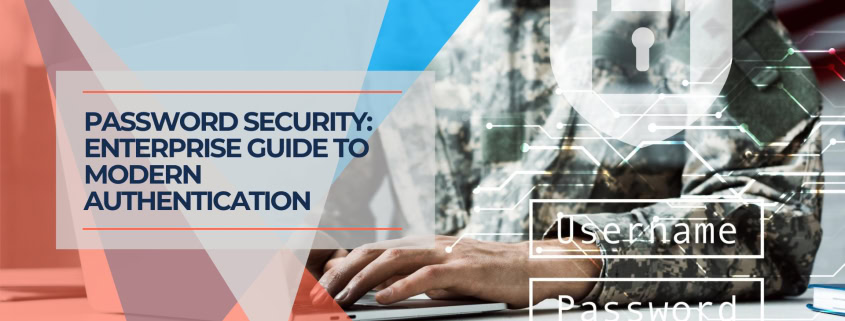
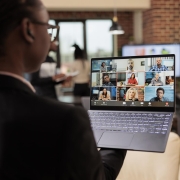



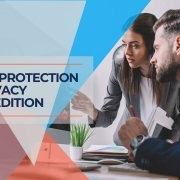
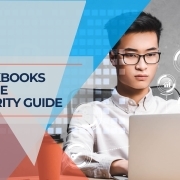
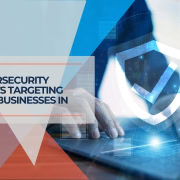
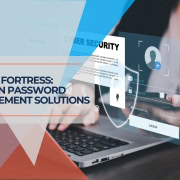


Leave a Reply
Want to join the discussion?Feel free to contribute!